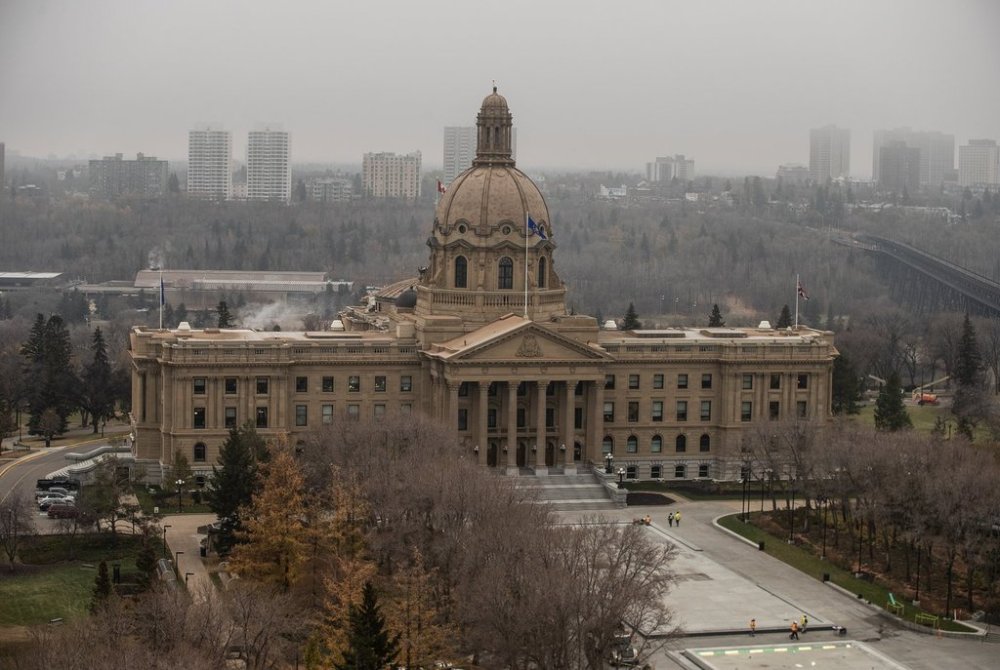Alberta’s ban on police ‘carding’ expires, but province says practice still outlawed
Advertisement
Read this article for free:
or
Already have an account? Log in here »
We need your support!
Local journalism needs your support!
As we navigate through unprecedented times, our journalists are working harder than ever to bring you the latest local updates to keep you safe and informed.
Now, more than ever, we need your support.
Starting at $15.99 plus taxes every four weeks you can access your Brandon Sun online and full access to all content as it appears on our website.
Subscribe Nowor call circulation directly at (204) 727-0527.
Your pledge helps to ensure we provide the news that matters most to your community!
To continue reading, please subscribe:
Add Brandon Sun access to your Free Press subscription for only an additional
$1 for the first 4 weeks*
*Your next subscription payment will increase by $1.00 and you will be charged $20.00 plus GST for four weeks. After four weeks, your payment will increase to $24.00 plus GST every four weeks.
Read unlimited articles for free today:
or
Already have an account? Log in here »
EDMONTON – The Alberta government has chosen not to renew a regulation banning the practice of “carding” by police officers, but the province says the practice is still prohibited under other laws.
The provincial regulation enforcing the ban was due for renewal this past summer, but a government letter to the Alberta Association of Police Governance and shared by the Edmonton Police Commission says the province wouldn’t be renewing it.
Carding refers to police officers stopping members of the public without reason and asking for identification.

Advocates have said the practice largely amounts to racial profiling, as statistics across Canada have shown people of colour are more likely to be carded than white people. A 2016 freedom of information request made to the Edmonton Police Service found Indigenous people were four times more likely to be carded.
The government’s letter says the decision to let the regulation expire was based on annual reports submitted by police forces across the province — which are required under the regulation — that “indicated strongly” that officers were relying on other legislation when conducting stops.
Public Safety Minister Mike Ellis’s office said in an email that the government’s Police Act still permanently bans the practice of carding.
“Without the regulation, police are still bound by strict legal standards,” said Ellis’s press secretary, Arthur Green. “Officers must have a lawful reason to request information, and they are trained to respect Charter rights, including the right not to be arbitrarily stopped or questioned.”
Alberta formally banned the practice of carding in 2021, and set new rules for other situations where officers ask the public for identification.
While the province’s Police Act also prohibits the practice of carding, it doesn’t require police services to submit annual reports detailing the number of attempts officers made to collect information from members of the public through other forms of stops, namely street checks.
Street checks are when officers stop members of the public and ask for information with specific reasons to do so.
The reports were required to be made publicly available and meant to ensure people of colour also weren’t being disproportionately street checked.
The Calgary Police Service said in a statement that it has never engaged in either carding or street checks and hadn’t before the regulation was put in place.
The Edmonton Police Service said it doesn’t use the term “street check” and its officers instead engage in “officer contact reports,” which a spokesperson said is also a highly regulated practice.
“In addition, there are ongoing internal monitoring mechanisms to ensure these interactions occur lawfully and are documented appropriately,” a spokesperson said in an email.
Temitope Oriola, a criminology professor at the University of Alberta who joined then-justice minister Kaycee Madu at a news conference in 2020 when the ban was first announced, said Thursday the government’s decision not to renew the regulation was “profoundly disappointing.”
He said officers are not legal experts and “rely on clear and consistent policy in order to do their job.”
“I say that because even practising lawyers don’t all know every federal or provincial statute,” he said.
Oriola said the initial regulation “wasn’t perfect” and that changes made to the Police Act the year after the ban was implemented were positive, but the regulation had its own benefits.
“It demonstrates an intriguing administrative tone-deafness,” he said of not renewing the regulation.
Green said there remain existing ways citizens can seek justice if they feel they’ve been treated unfairly by police.
“If anyone feels they’ve been treated unfairly, there are clear avenues to raise concerns, including through local police commissions and independent oversight bodies,” said Green.
This report by The Canadian Press was first published Sept. 18, 2025.
